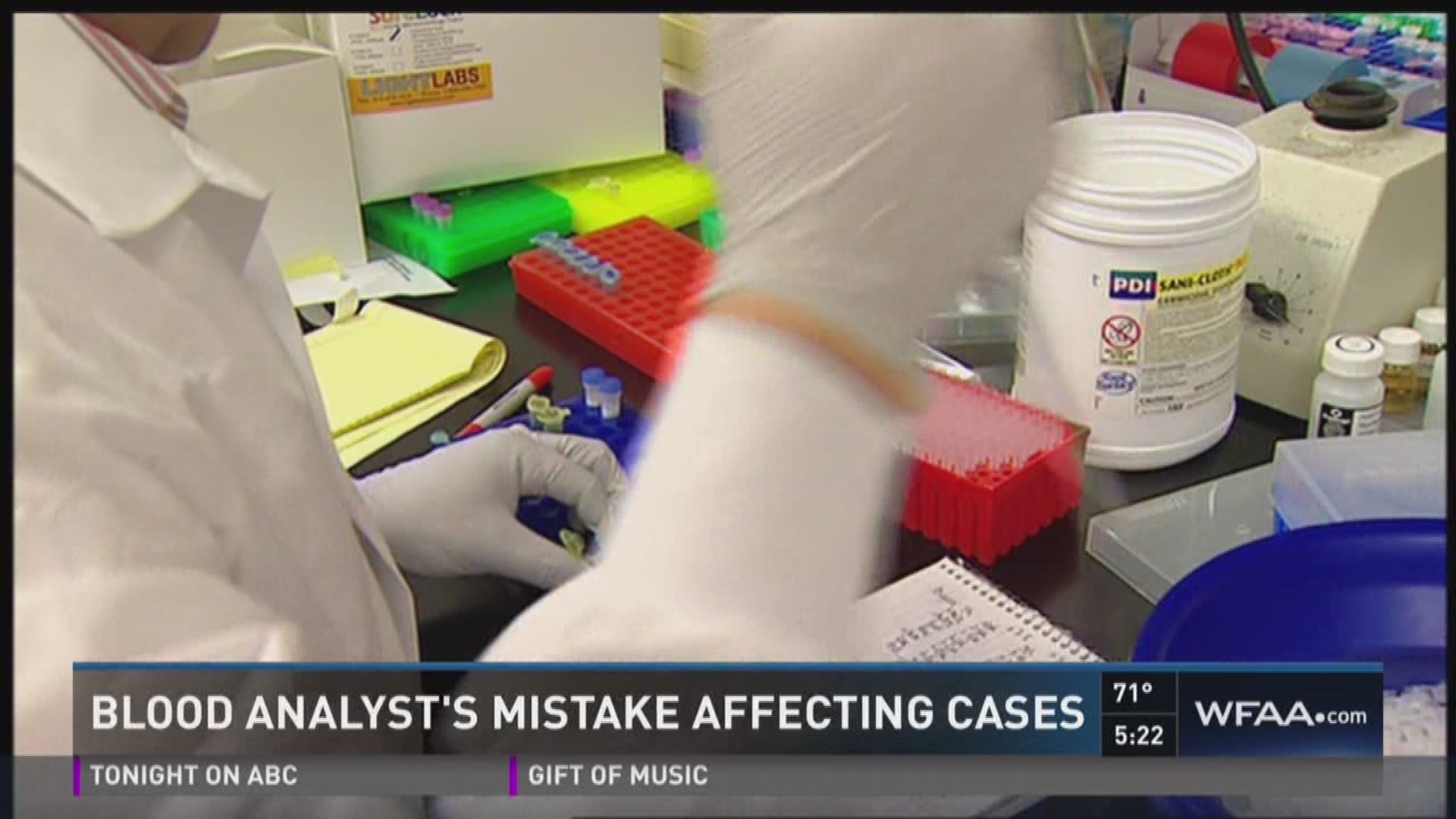DALLAS -- The medical examiner's office in Dallas County says a recent disclosure of an error in evidence analysis five years ago does not signal a broader problem for other criminal cases.
A DWI trial was rescheduled on Thursday after it was learned a forensic chemist for the Southwestern Institute of Forensic Sciences (SWIFS) self-reported last week a "sample switching" that occurred in 2012.
Defense attorney Deandra Grant says she learned of the disclosure on Wednesday.
"The entire credibility of a blood test result rests on the analyst," Grant said.
The incident has gathered additional scrutiny because of a revelation News 8 uncovered related to a blood analyst at the Texas Department of Public Safety lab last week.
In that case, the analyst provided testimony as an expert prosecution witness, but never revealed that they had an instance of unintentional "sample switching" in 2013. DPS has since removed that analyst while a review of potential effects on criminal convictions and pending cases is assessed.
"This is these labs not telling district attorney's offices what’s going on in their labs,” Grant said.
The director of SWIFS disagrees.
In a statement to News 8 Thursday, Dr. Jeffrey Barnard said the "sample switching" error in 2012 was discovered internally and addressed.
"Due to the recent media attention relating to the DPS analyst, in an exercise of extreme caution, our analyst brought forth this issue herself and disclosed the information before testifying," Barnard said. "There was no prior disclosure as the lab quality review of the situation determined that there was no impeachable conduct or other reportable issue."
Grant says she and other defense attorneys feel not reporting these incidents hurts their client's ability to obtain a fair trial because they are unable to present exculpatory evidence of mistakes made for forensic analysts.
A request for comment from the Dallas County District Attorney's office was not immediately returned on Thursday.
Here is Dr. Barnard's full response:
"The Southwestern Institute of Forensic Sciences (SWIFS) was notified today of an allegation that our office failed to report 'Brady evidence' to the Dallas County District Attorney (DA). The DA defines Brady evidence as evidence that tends to exculpate or mitigate charges against a defendant or evidence that impeaches a prosecution witness.
"The allegation resulted from a driving while intoxicated case prosecuted by the Dallas County District Attorney that included testimony from a SWIFS toxicology chemist regarding analysis she performed on evidence submitted to SWIFS by a law enforcement agency. Prior to her testimony in the case, she notified the prosecution, defense attorney and the judge of a laboratory reporting error that occurred on one case during her analysis of medical examiner autopsy specimens in 2011. In that case, the laboratory reported that no controlled substance was detected in the alkaline drug screen. When a lab quality process identified the possibility of an error, the specimen was reanalyzed yielding a positive result. A corrected lab report was issued (prior to the completion of the autopsy report) and the incident was reviewed and documented through our standard quality management process.
"Due to the recent media attention relating to the DPS analyst, in an exercise of extreme caution, our analyst brought forth this issue herself and disclosed the information before testifying. The toxicology chemist was questioned by the defense attorney during the trial about this issue in front of the jury. There was no prior disclosure as the lab quality review of the situation determined that there was no impeachable conduct or other reportable issue.
"Our lab quality system serves to provide a framework for continuous improvement and to ensure the adequacy and reliability of lab processes sufficient to meet organizational objectives, including accreditation standards. Through the quality system, we work to reduce the number of errors, to identify and correct errors when they do occur, and to prevent future errors."

